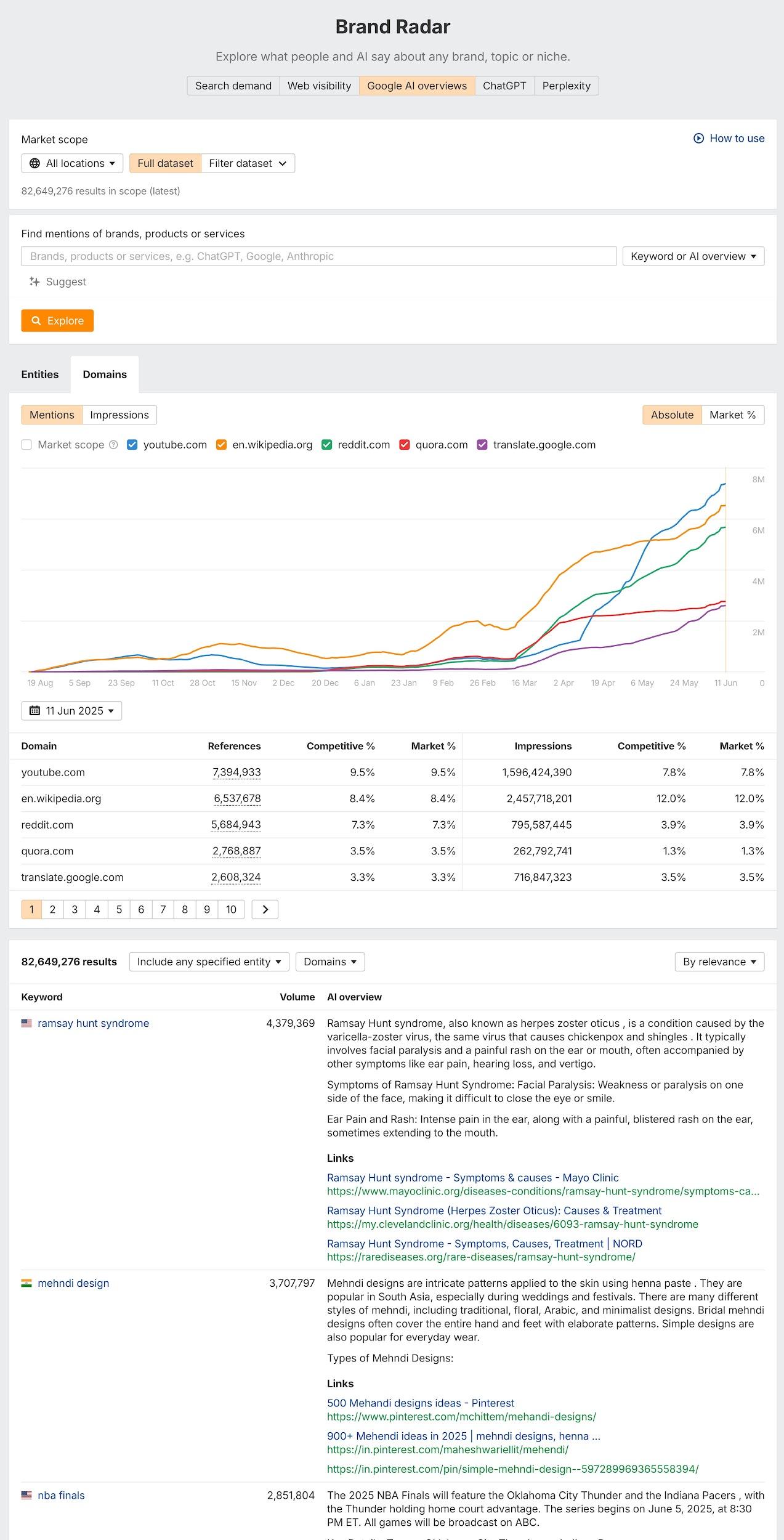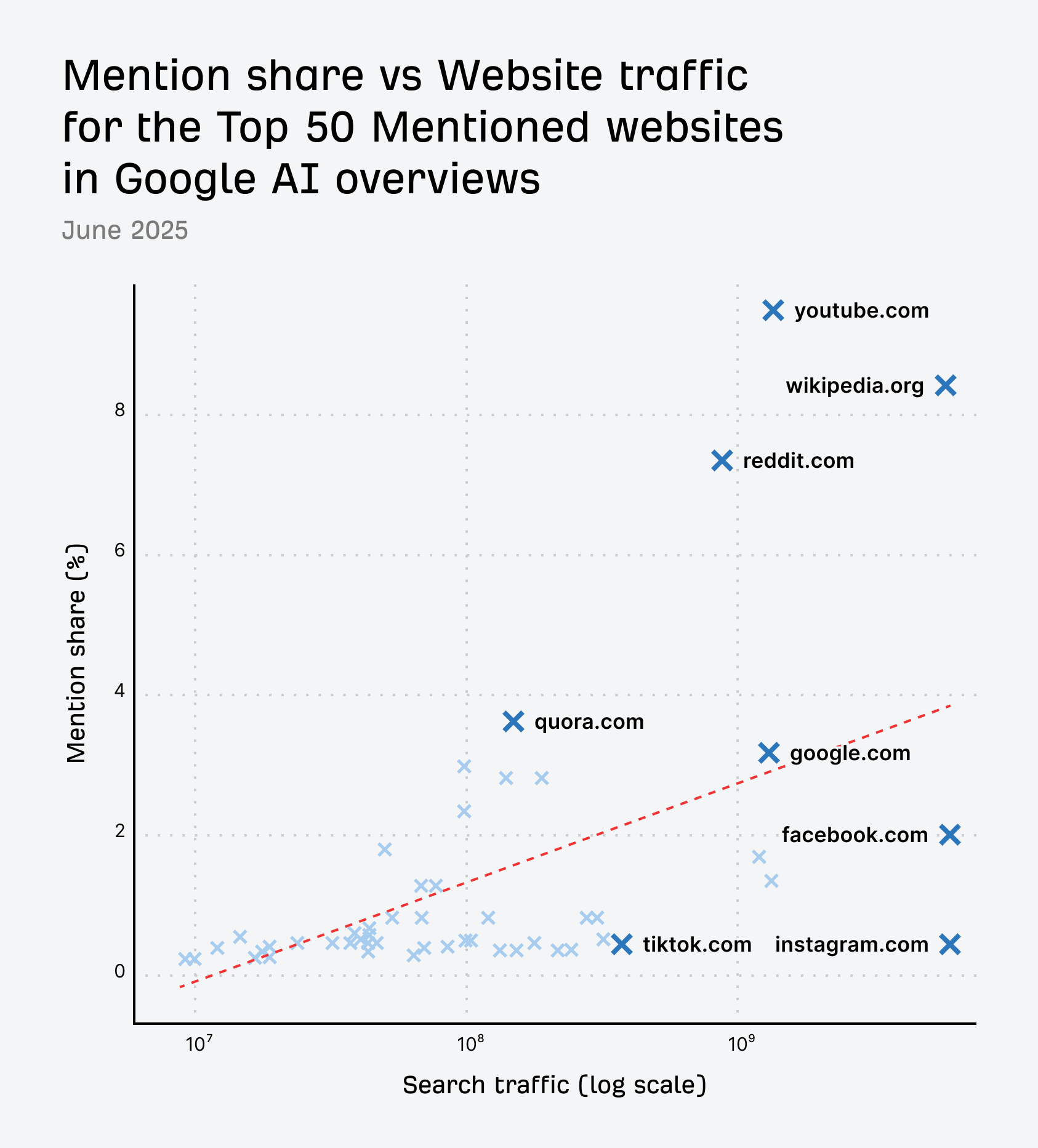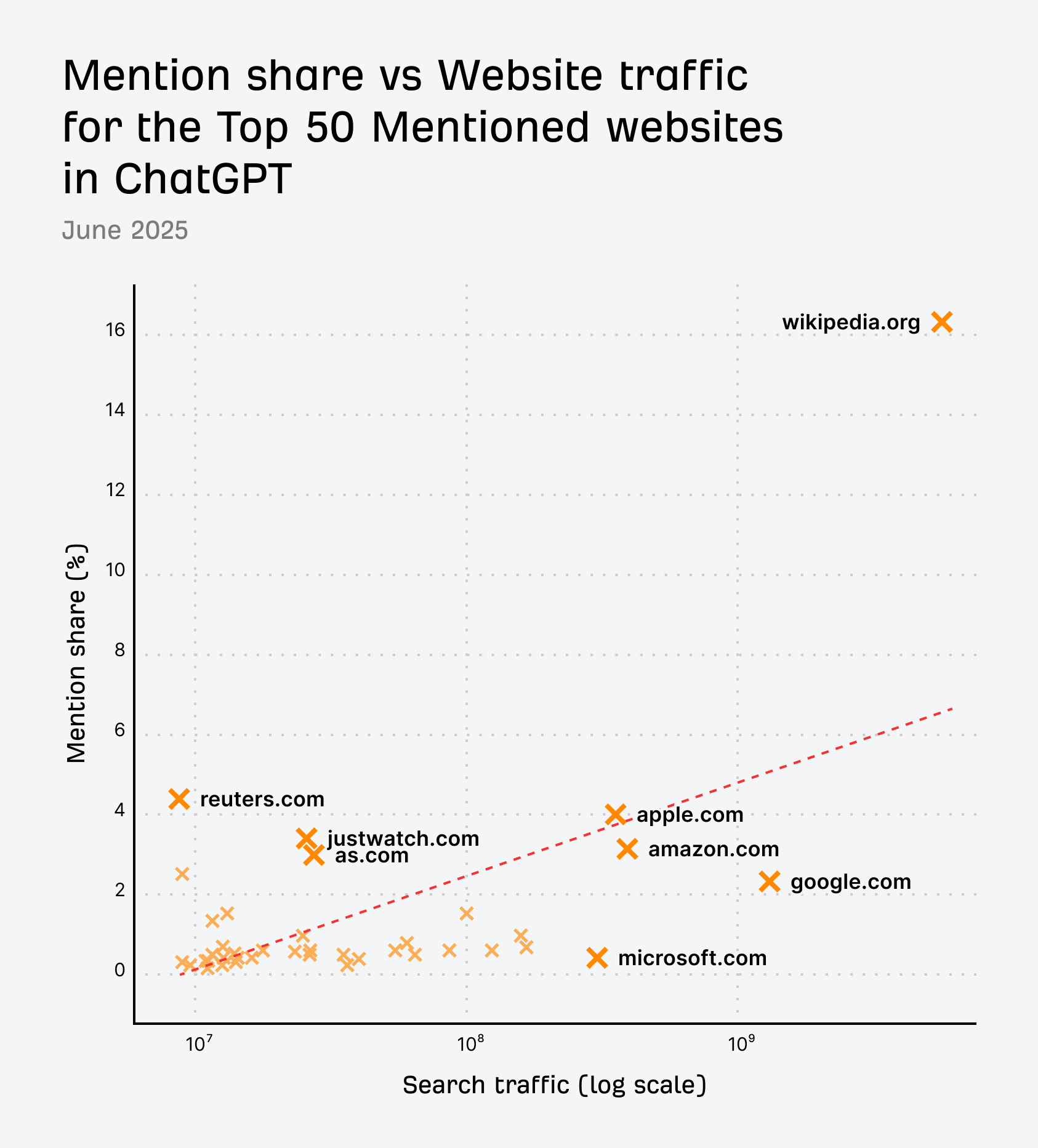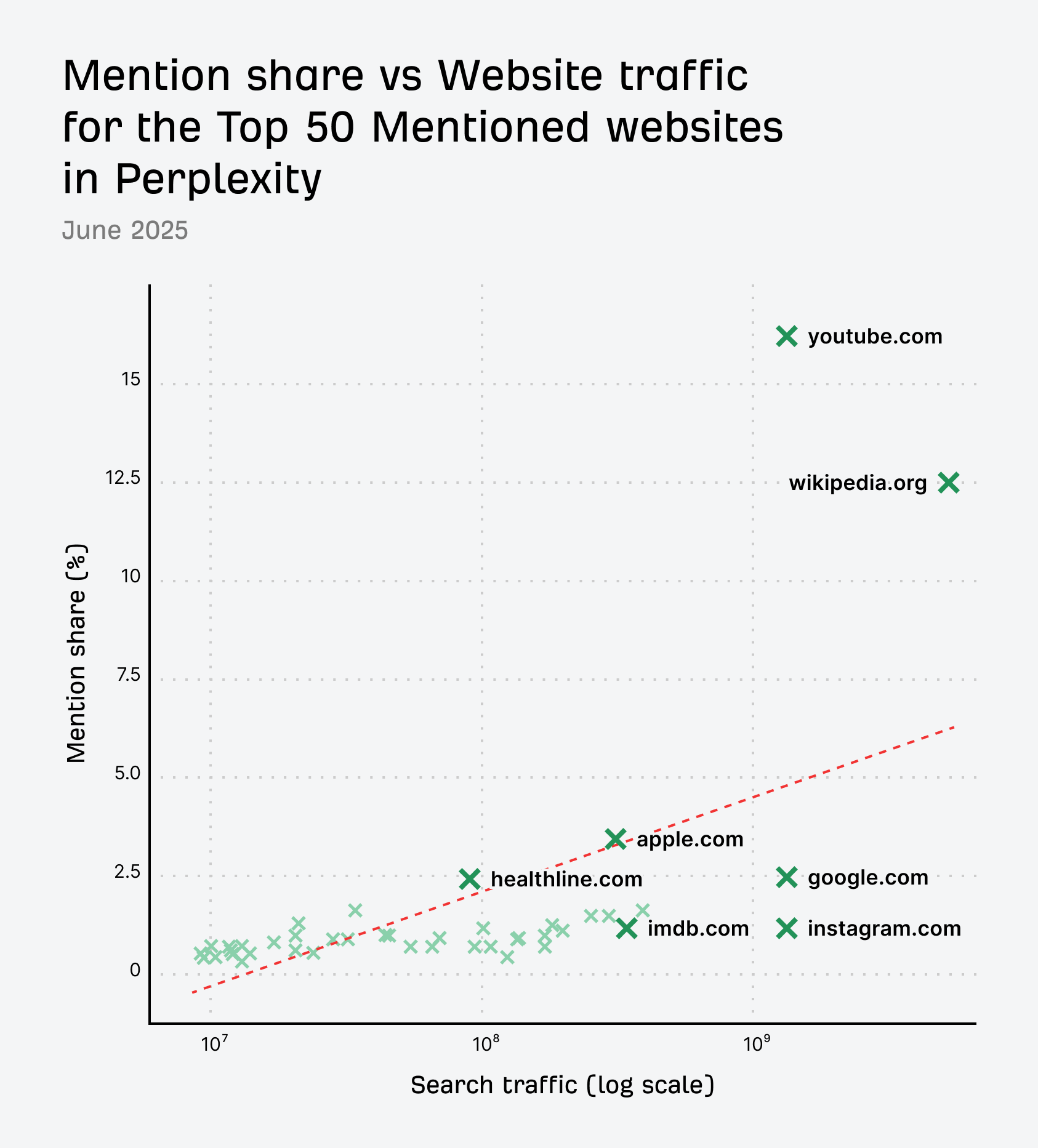I looked at the top 50 websites mentioned in Ahrefs Brand Radar for Google AI Overviews, ChatGPT, and Perplexity. This is across ~76.7M AI Overviews, 957k ChatGPT prompts, and 953.5k Perplexity prompts for the month of June 2025.
I compared the website mentions to their worldwide organic search traffic in Ahrefs.
Here’s what Brand Radar looks like.

Let’s dig in.
All 3 systems seem to mention more trafficked websites more often, but the strength of that relationship varies a bit.
Perplexity mentions are the most aligned with the organic search traffic of the websites and ChatGPT is the least aligned, but if Wikipedia wasn’t such a huge outlier, it would be much more aligned.
I’ll give the usual correlation does not equal causation disclaimer, but this correlation makes complete sense.
Here are the Spearman rank correlations for mention share vs. search traffic across the top 50 domains in each system:
| AI Assistant | Spearman Rho | P-Value | Correlation |
|---|---|---|---|
| Google AI Overviews | 0.47 | 0.0006 | Moderate |
| ChatGPT | 0.33 | 0.0515 | Weak |
| Perplexity | 0.66 | 0.0000 | Strong |
Search is what Google does. Sites that rank well and have more organic search traffic in Google also seem to be mentioned more in AI Overviews.

AI Overviews are over-indexed on user generated content (UGC) sites like YouTube, Reddit, and Quora, as well as Wikipedia. They’re under-indexed on social media sites like Facebook, Instagram, and TikTok.
In a previous study, we saw AI Overviews favored UGC sites like YouTube, Reddit, and Quora potentially more than their topic popularity indicated they should, and we see it again here with search traffic. Google really seems to be relying heavily on these systems, potentially more than they should. Or maybe they just have answers and the type of content that people really want.
While Wikipedia ranks well in Google and shows prominently here, it was actually under-represented when we looked at it for topic popularity. I’d say that Wikipedia may have actually been under-represented in traditional web search. Don’t worry though, Google seems to be correcting that with AI Overviews.
ChatGPT was the wildcard here. They don’t have a traditional search index, so I wasn’t sure what to expect from the results. They still ended up with a decent correlation to organic search traffic.

The previous study showed Wikipedia and news sites like Reuters were under-utilized compared to topic popularity, but here that gets corrected. It looks like they may have been under-represented in traditional organic search by Google.
Wikipedia is extremely dominant for ChatGPT mentions. They’re mentioned in 16.3% of the total queries! News is also better represented in this index. In fact, without Wikipedia, the correlation between mentions and search traffic would have been much stronger.
The ones who aren’t doing as well are corporate and entertainment sites. They’re not getting as much visibility compared to how they performed on Google.
Despite not having a traditional search engine, Perplexity showed the strongest correlation to organic search traffic of any of the ones studied. We saw a similar outcome when we looked at mentions versus topic popularity. It makes me wonder if they pulled this data from somewhere and trained their model to align with it.

YouTube and Wikipedia dominate on Perplexity, with 16.1% and 12.5% of the total mentions. Several health sites also cluster above like Healthline and MedlinePlus.
Under-represented are social media sites like Instagram, entertainment sites like IMDB, and some corporate sites like Google and Microsoft.
Final thoughts
This shouldn’t come as a shock to anyone. Websites with more organic search traffic get mentioned more in AI Search.
From the sites being favored, I’d say creating videos and being active on forums is a good idea. These systems really seem to want user generated content.
I’m not sure if writing encyclopedic content would really work unless you’re Wikipedia. Looking at our own glossary, it gets some, but not many visits from AI Search.
If you have questions, ask me on LinkedIn or X.


